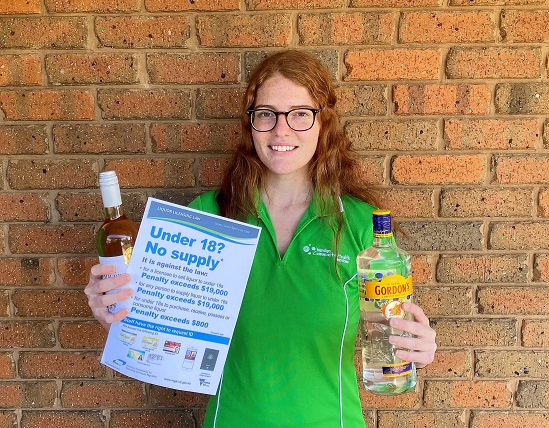“We found 41 per cent of the ‘chain’ stores we visited sold alcohol without seeing ID but this rose sharply to 66.6 per cent of ‘independent’ and 90 per cent of ‘franchise’ alcohol outlets.
“It’s concerning that some outlets are just not abiding by liquor licensing laws.
“If we are to truly stop the impact alcohol is having on our communities then everyone must play their role.
“Most of the stores were ‘nearly empty’ when the sales were made so ‘too busy to ask’ is not an excuse.”
Ms Else said BCHS had written to all the alcohol outlets involved to share the results and urge business owners running stores that did not comply with Liquor Licensing Laws to ensure staff were more responsible.
“We hope that this will serve as a great reminder and bring about a much-needed change in attitudes around selling alcohol without identification” Ms Else said.
“When we did this project in 2019 we found 86 per cent of bottle shops visited sold alcohol to the young person without identification and thankfully after writing to these business owners and raising awareness in the community we repeated the process and this fell to just 33 per cent. We hope to see that type of response again.
“Really it shouldn’t take a project like this to remind bottle shop owners to follow the law. It should be something they focus on every single day they open the doors. Let’s hope the results are vastly improved next time around.”
The Supply Monitoring Project comes as a Coroner’s Report found alcohol was a bigger killer than illicit drugs being listed as the primary cause of 482 deaths in Australia and a contributing factor in 968 deaths.
The Federal Government is planning to make reducing alcohol consumption a key feature of a new preventative health strategy.
MEDIA CONTACT
Rod Case
Communications and Community Engagement
Bendigo Community Health Services
Phone: 5406 1229
